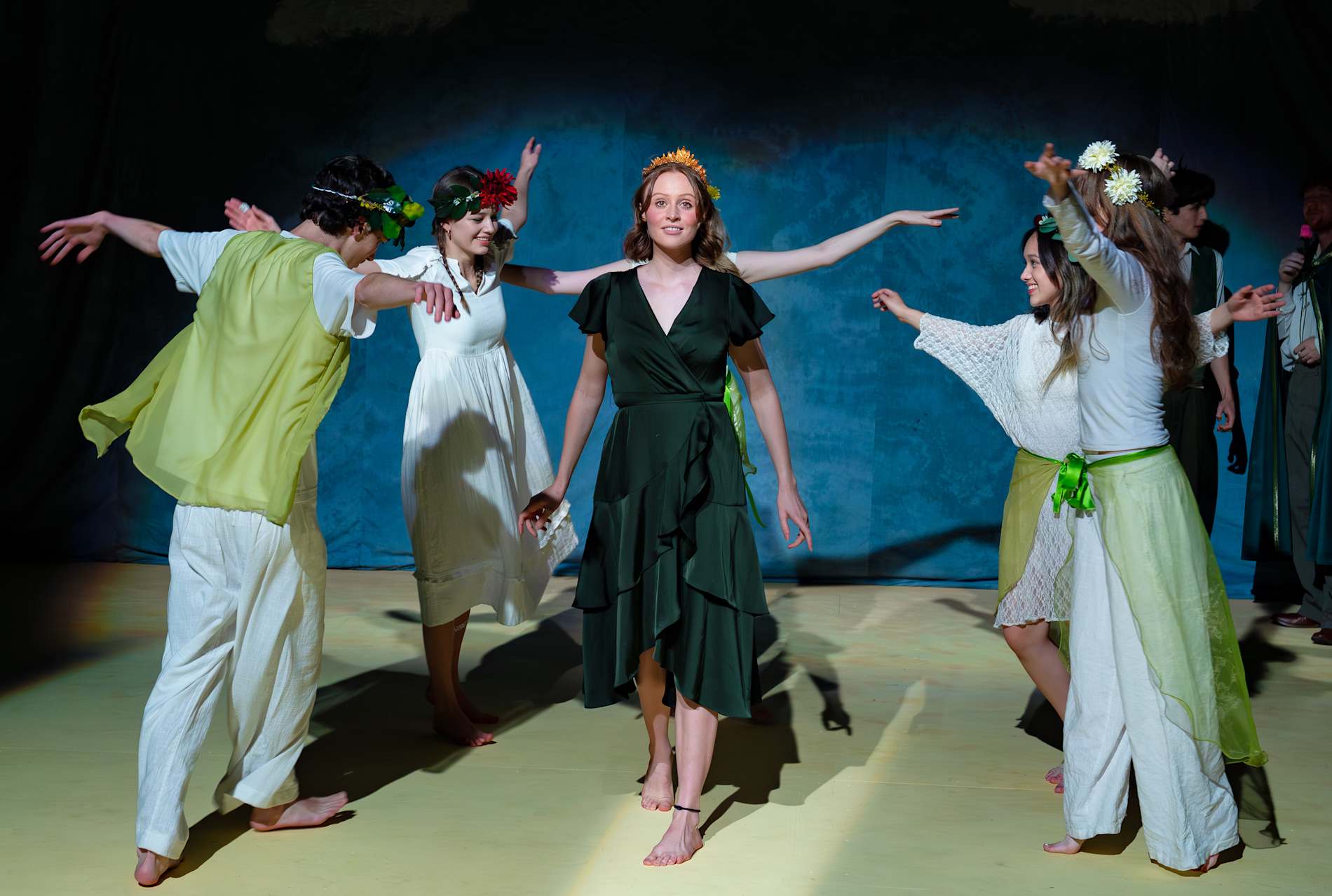
Read the Charter of Independence here.
Monash Uni Student Theatre’s production of Away this month, under the superb direction of Max Pickering and Esmé Stripp, was a captivating portrayal of Michael Gow’s play.
Themes of grief, loss, expectations and identity all intertwined to create a riveting show.
Set in the mid-1960s, Away explores the psychological impact of the post-Vietnam war period on Australian families.
Over the course of 1 hour and 40 minutes we were immersed in the lives and dynamics of three complex families, woven seamlessly into a powerful and emotionally engaging show.
By the end of the first act, I found myself fully invested.
The ice was broken with a short meta-theatrical interpretation of A Midsummer Night’s Dream, giving us a glimpse of the talent to come.
The dim blue lighting and whimsical fairies created an enchanting atmosphere that drew the audience in.
The intimacy of the MUST theatre space amplified the audience’s connection with the actors, as we were sitting only metres from them.
Felicity Barrows, playing Coral, gave a particularly moving performance that captured the emotional fragility of a grieving mother.
Throughout the play she appeared disconnected from reality and increasingly withdrawn from her surroundings.
Barrows delivered a compelling portrayal of Coral’s instability through her ethereal presence and poetic dialogue.
In contrast, Lucy Fraser, playing Gwen, encapsulated a domineering, fiery mother.
From the moment she stormed on stage and bellowed her sharp dialogue — all eyes were on her.
Her controlling nature came to life as she meticulously packed the suitcase and obsessively arranged the Christmas gifts.
Fraser’s powerful stage presence commanded attention, leaving a lasting impression on the audience.

Meanwhile, Gwen’s daughter, Meg, played by Grace Jackson, was exploring a budding romance with her friend Tom, played by Patrick Leong.
Both Jackson and Leong managed to capture the nuance of teenage relationships; through subtle gestures and hesitant glances they portrayed the uncertainty and tenderness of young love.
It was an emotional rollercoaster — from laughing at the self-proclaimed beach leaders’ absurd complaints, to being moved by Coral’s grief and Vic and Harry coming to terms with their son’s leukaemia diagnosis.
An ambient atmosphere was created through the choreography, lighting, and sound that beautifully complimented each other.
There was a high level of talent amongst the dancers although the varying levels of experience was sometimes noticeable and may have affected the ensemble’s cohesion.
The choreographer’s creative approach brought distinct styles to each dance sequence — with one standout being the '60s-inspired moves such as the ‘twist’ and the ‘mashed potato’, vibrantly performed by the ensemble.
Through strong direction, thoughtful staging, and deeply emotive performances, the cast and crew of Away succeeded in creating a moving piece of theatre.